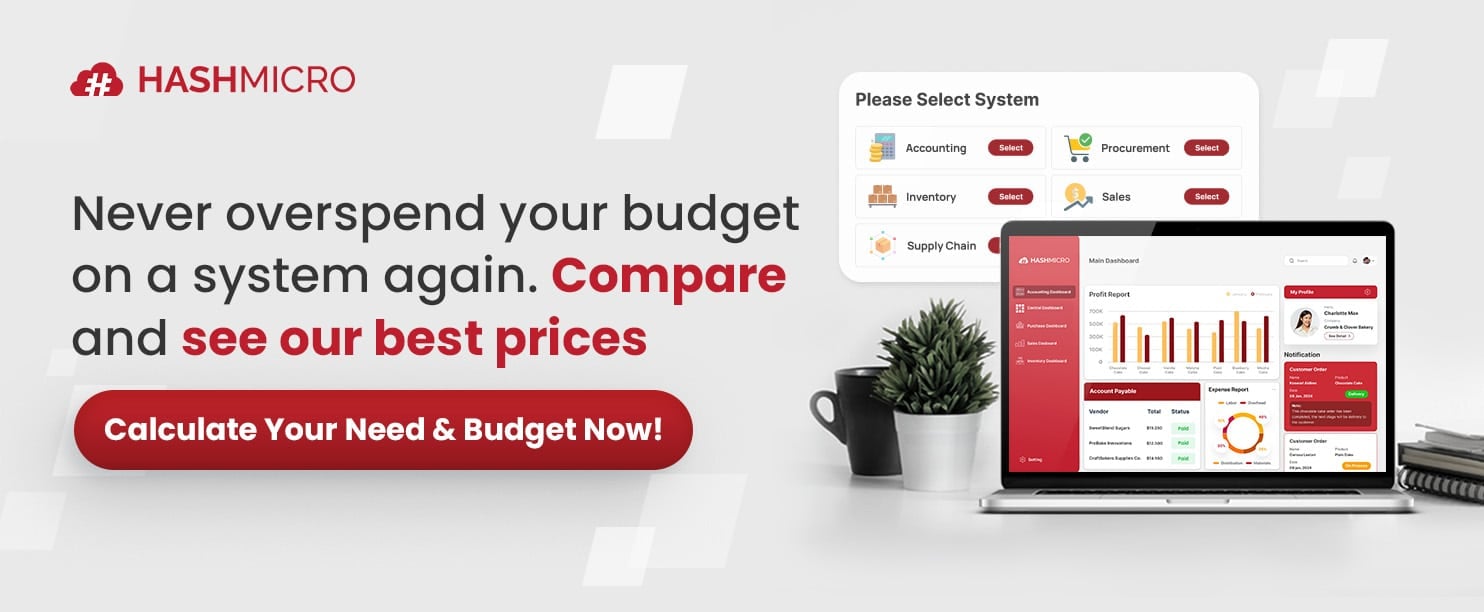Imagine your retail operations running without structured scheduling controls. Sudden shifts, staff shortages during peak hours, and incorrect recording of working hours can lead to decreased productivity, increased overtime costs, and lower customer satisfaction.
In Malaysia, the retail sector is growing rapidly. According to Mordor Intelligence, its market size is expected to reach RM 452 billion by 2025 and increase to RM 603 billion by 2030, with an annual growth of 5.94%. This increase is driven by rising incomes, urbanisation, and the adoption of digital technologies.
The need for efficient scheduling solutions is becoming increasingly important. Retail scheduling software helps businesses manage employee schedules, optimise resource allocation, and ensure operations run smoothly.
This article presents a list of the 12 best retail scheduling software in Malaysia. By exploring these platforms, you will discover how they can help manage employee schedules, improve operational efficiency, and support the growth of your retail business.
Key Takeaways
|
Table of Content
Content Lists
What is Retail Scheduling Software?
Retail scheduling software is a digital tool designed to streamline workforce planning and shift scheduling in retail businesses. It enables managers to assign shifts, track attendance, and ensure optimal staffing coverage across store locations.
This software automates manual scheduling processes, reducing human errors and saving valuable time. With features such as real-time shift updates, mobile access, and time-off requests, it enhances both employee experience and operational flexibility.
Retail scheduling software is particularly valuable for retail chains or businesses that employ hourly workers. It supports fair shift distribution, compliance with labour laws, and helps prevent understaffing or overstaffing—common issues that affect customer service and sales performance.
Most retail scheduling systems integrate with HR software and retail ERP platforms, allowing seamless synchronisation of payroll, performance tracking, and employee data. Ultimately, this leads to improved labor cost control, efficient operations, and a more satisfied workforce.
Why Do Retail Businesses Need Scheduling Software?
For retailers, using scheduling software for retail stores is key to maintaining smooth daily operations and enhancing employee satisfaction. With automation and real-time visibility, retail workforce scheduling solutions reduce staffing errors, improve shift fairness, and align labor with customer demand. Below are the top reasons why this software is essential:
1. Optimised shift planning and coverage
Retail scheduling software enables managers to create efficient schedules based on peak hours, employee availability, and business needs. This reduces the risk of understaffing during rush periods or overstaffing during slow hours, improving customer service and operational cost control.
2. Improved employee experience and flexibility
Employees can access schedules, swap shifts, and request time off through mobile apps. This flexibility empowers staff, boosts engagement, and reduces absenteeism—key factors in achieving a positive employee experience in fast-paced retail environments.
3. Automated time tracking and payroll integration
Integrated with HR software and payroll systems, retail scheduling tools can track working hours, overtime, and absences. This ensures accurate wage calculations, reduces manual errors, and simplifies payroll processing across retail locations.
4. Data-driven labor forecasting
With built-in analytics, managers can monitor scheduling trends, labor costs, and employee performance. This supports smarter workforce planning, enabling better budgeting and the identification of staffing inefficiencies in real-time.
5. Stronger compliance and labor law adherence
Retail scheduling software helps ensure compliance with labor regulations, such as minimum rest periods, maximum working hours, and age-based shift rules. Alerts and automated workflows minimise legal risks and foster a safer, fairer work environment.
12 Best Retail Scheduling Software for Your Business
Here are 12 top-rated retail scheduling software options for Malaysian retail businesses that we’ve carefully selected based on their functionality, usability, and ability to support employee shift planning, attendance, and workforce coordination across multiple outlets.
- HashMicro Retail Scheduling Software: Cloud-based all-in-one software with AI-powered automation, smart shift assignment, facial recognition attendance, and integration with payroll and HR modules to streamline retail workforce management.
- Employment Hero: HR software with basic scheduling and leave management features.
- BrioHR: Provides attendance, shift planning, and simple scheduling for SMEs.
- AltHR: All-in-one HR platform with shift, time-off, and attendance tracking.
- Apploye: Time-tracking tool with shift scheduling and task monitoring features.
- SAP: Comprehensive ERP with scheduling features for large retail operations.
- PeopleHum: HR platform offering time tracking, shift planning, and performance tools.
- PayrollPanda: Payroll system with shift and leave scheduling for smaller retailers.
- HR2eazy: Local HR solution with attendance and basic scheduling features.
- FactoHR: Mobile-ready software for shift planning and employee tracking.
- AgileHR: A Lightweight tool for staff records, shift assignment, and reporting.
- Kakitangan: Malaysian HR and payroll system with daily shift scheduling support.
Selecting the right retail scheduling software is essential for optimizing labor costs, ensuring proper shift coverage, and improving employee satisfaction. This guide highlights 12 trusted platforms to help you assign shifts, monitor attendance, and manage staff availability more effectively across one or multiple retail locations.
1. HashMicro Retail Scheduling Software
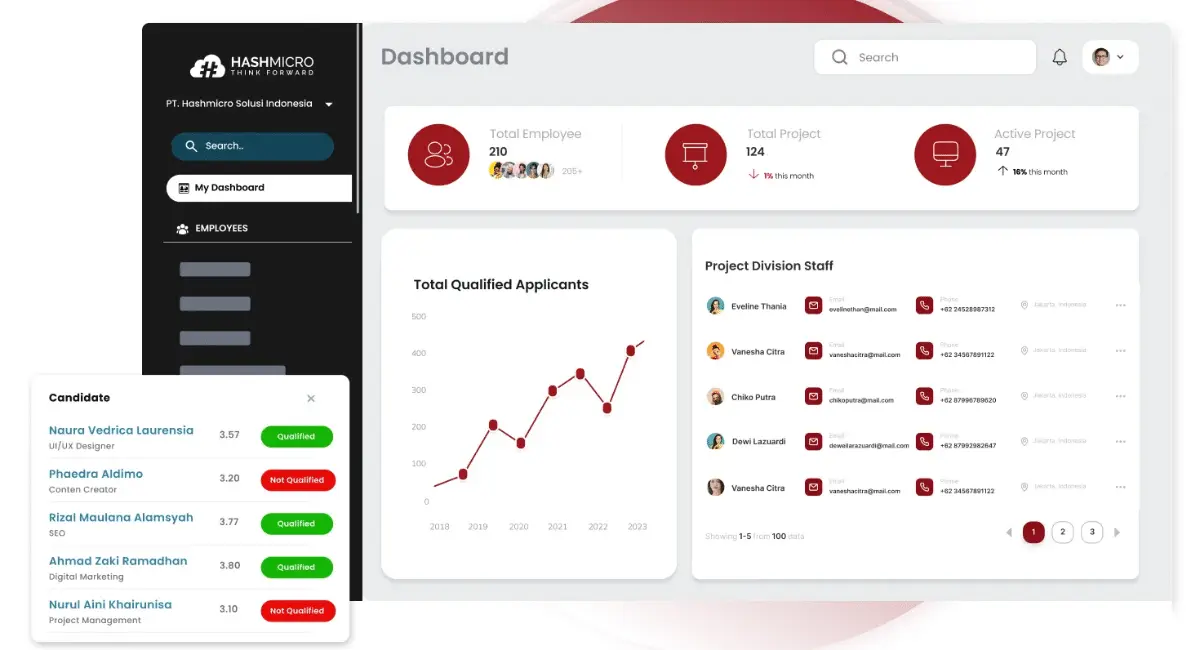
HashMicro is one of Malaysia’s leading ERP providers, offering cloud-based HR software solutions tailored to the dynamic needs of the retail industry. With seamless integration, an intuitive interface, and highly customisable features, this software is ideal for mid-sized businesses and large retail enterprises seeking efficient workforce management.
Beyond traditional HR functionalities, HashMicro provides advanced tools such as time tracking, accounting integration, and competency management, supporting over 25 industries. These capabilities help retail businesses boost productivity, reduce manual tasks, and improve decision-making with accurate real-time data.
Key features that make HashMicro a top choice for retail scheduling software include:
- Hashy AI: Staff can apply for leave, track attendance, submit expenses, and request overtime directly via chatbox. Managers can quickly approve requests and access reports, streamlining HR tasks in retail operations.
- Face Recognition & GPS Attendance with Fake GPS Detection: Monitor employee attendance in real-time using facial recognition and GPS technology. The system includes a fake GPS check to ensure that all location data is valid and trustworthy.
- Roster & Dynamic Shift Scheduling: Create and manage flexible employee schedules with ease. This feature allows managers to accommodate rotating shifts, part-time schedules, and peak-hour staffing, which is crucial for retail operations.
- Payroll for Daily and Hourly Workers: Automate payroll processes for hourly and daily workers, including accurate wage calculation and payslip generation, minimising errors and saving time.
- Recruitment & Talent Development: Streamline hiring with features like automated job postings, resume filtering, and interview scheduling. The system also tracks employee performance and helps managers develop skill-based career paths to retain top talent.
- Localised Payroll with Tax Automation: Ensure compliance with Malaysian tax laws through fully localised payroll processing that includes automatic tax and statutory calculations.
- Comprehensive HR Reporting: Access detailed reports on employee leave, payroll, expenses, overtime, and attendance to make informed HR and scheduling decisions.
| Pros | Cons |
|
|
If you are interested in learning more about how HashMicro Retail Scheduling Software can streamline shift planning and improve workforce management across your retail stores, click the banner below to view the pricing scheme.
2. Employment Hero
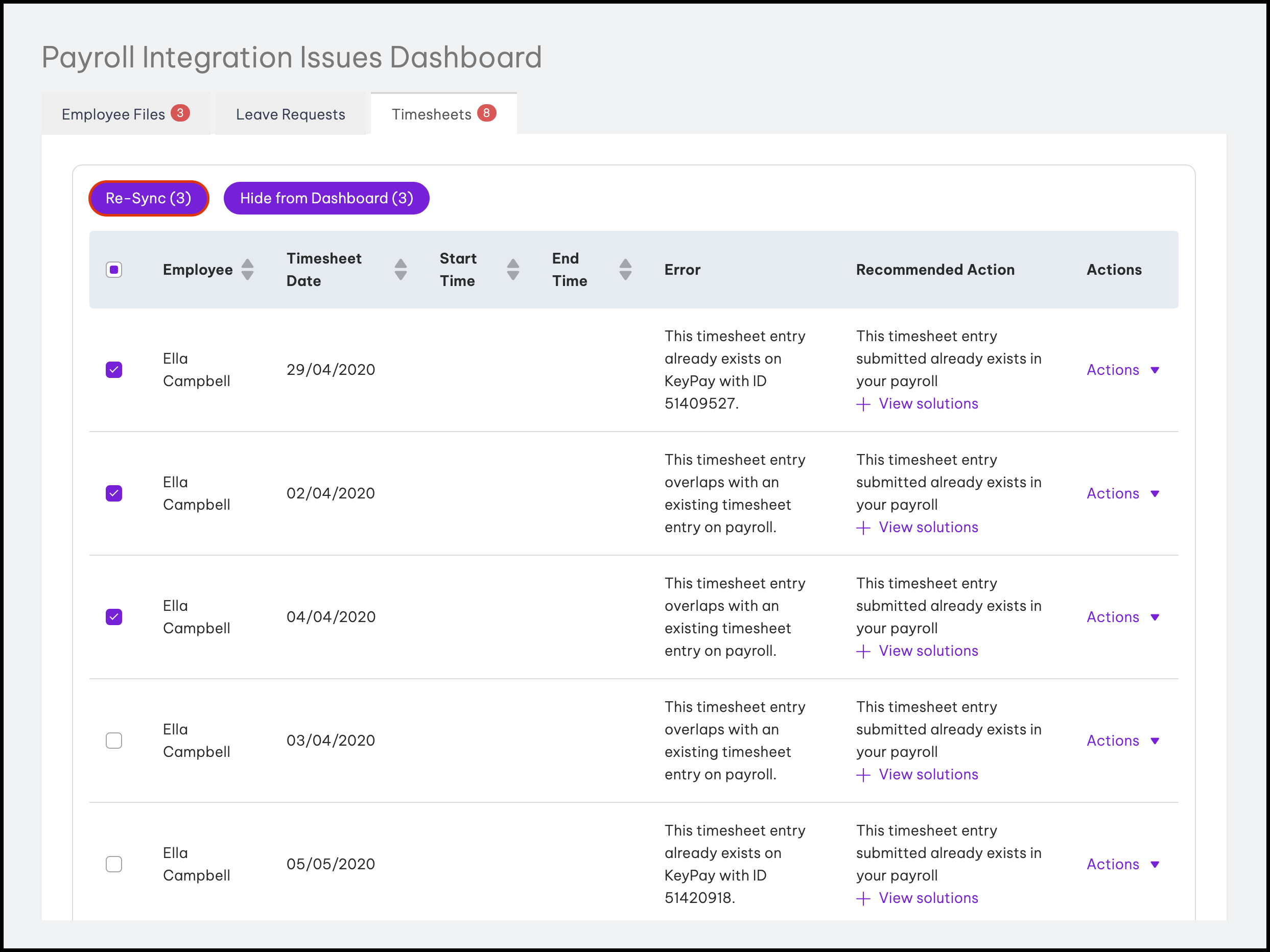
Employment Hero is a workforce management platform that offers basic scheduling, payroll, and HR tools suitable for retail businesses. It helps manage employee shifts, track attendance, and streamline HR processes.
The software is typically used by small to medium-sized retailers looking for a simple system to handle rosters and basic employee administration.
Key Features:
- Employee shift scheduling
- Time and attendance tracking
- Payroll integration
| Pros | Cons |
|
|
3. BrioHR
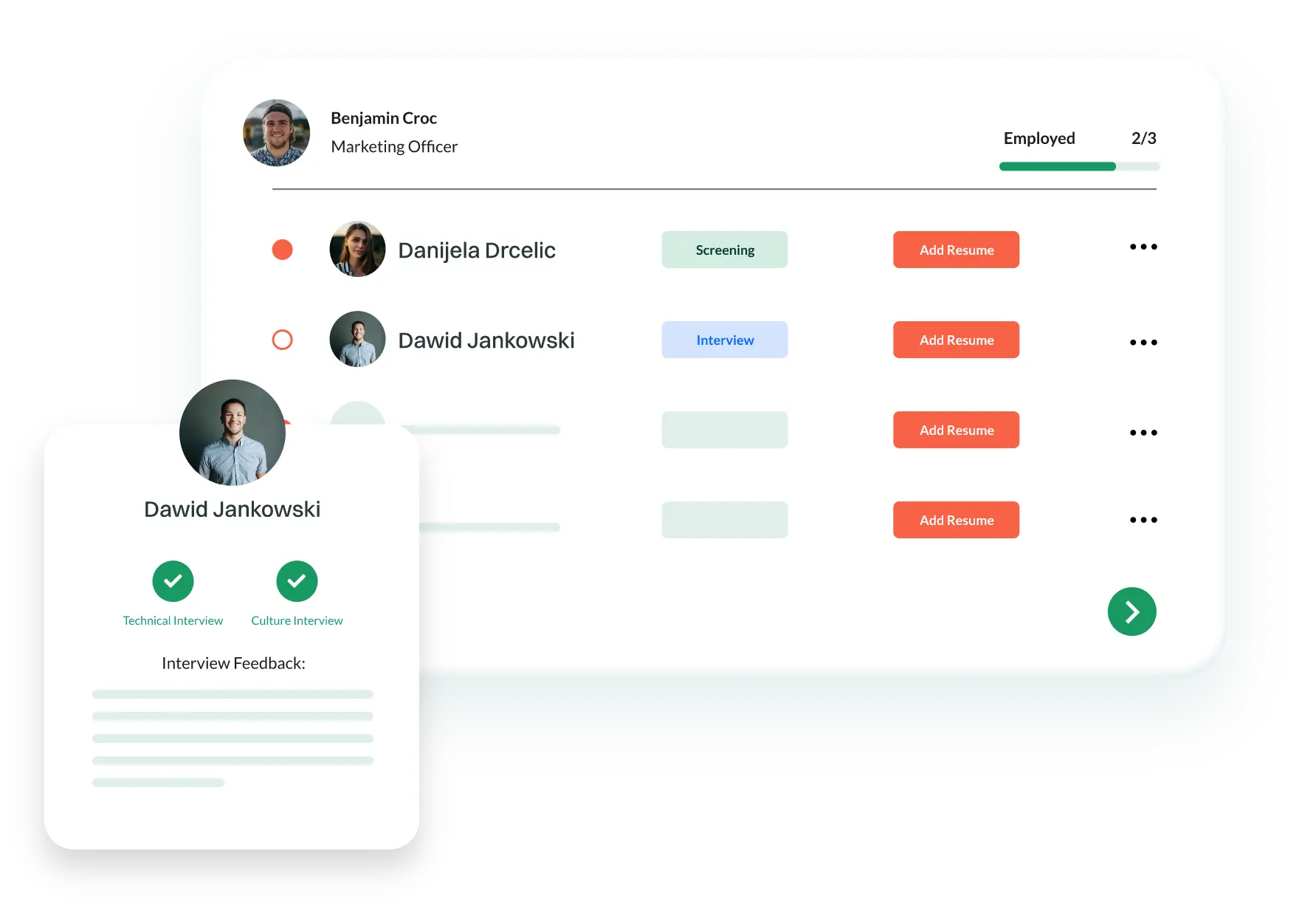
BrioHR is a cloud-based HR and workforce management solution that includes scheduling tools suitable for retail operations. It supports shift planning, attendance tracking, and basic HR workflows to help manage retail staff more efficiently.
The platform is commonly used by small to mid-sized retail businesses looking for a straightforward way to handle staff scheduling and HR documentation in one system.
Key Features:
- Shift scheduling and rostering
- Time and attendance tracking
- Employee record management
| Pros | Cons |
|
|
4. AltHR
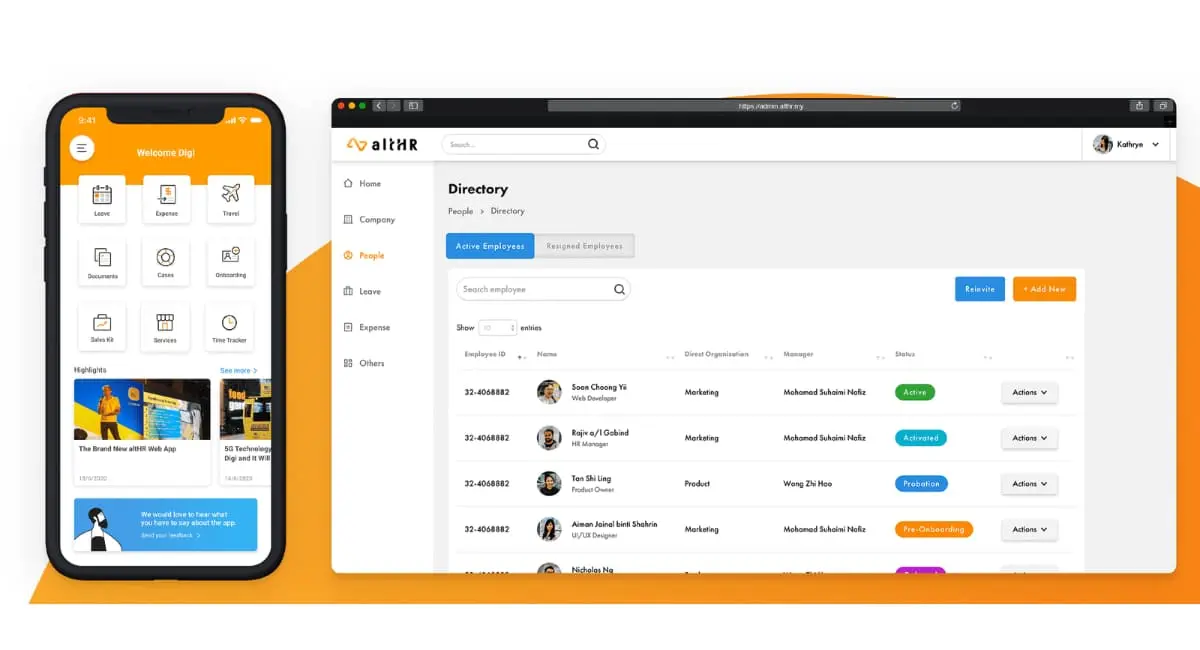 AltHR is a digital HR platform designed to streamline workforce management, including scheduling features suitable for retail businesses. It helps businesses organise shifts, manage employee data, and handle HR-related tasks through a centralised system.
AltHR is a digital HR platform designed to streamline workforce management, including scheduling features suitable for retail businesses. It helps businesses organise shifts, manage employee data, and handle HR-related tasks through a centralised system.
The platform is often used by small to medium-sized retail companies that need a simple tool to manage schedules, attendance, and internal communication efficiently.
Key Features:
- Shift scheduling and rostering
- Attendance tracking
- Employee database management
| Pros | Cons |
|
|
5. Apploye
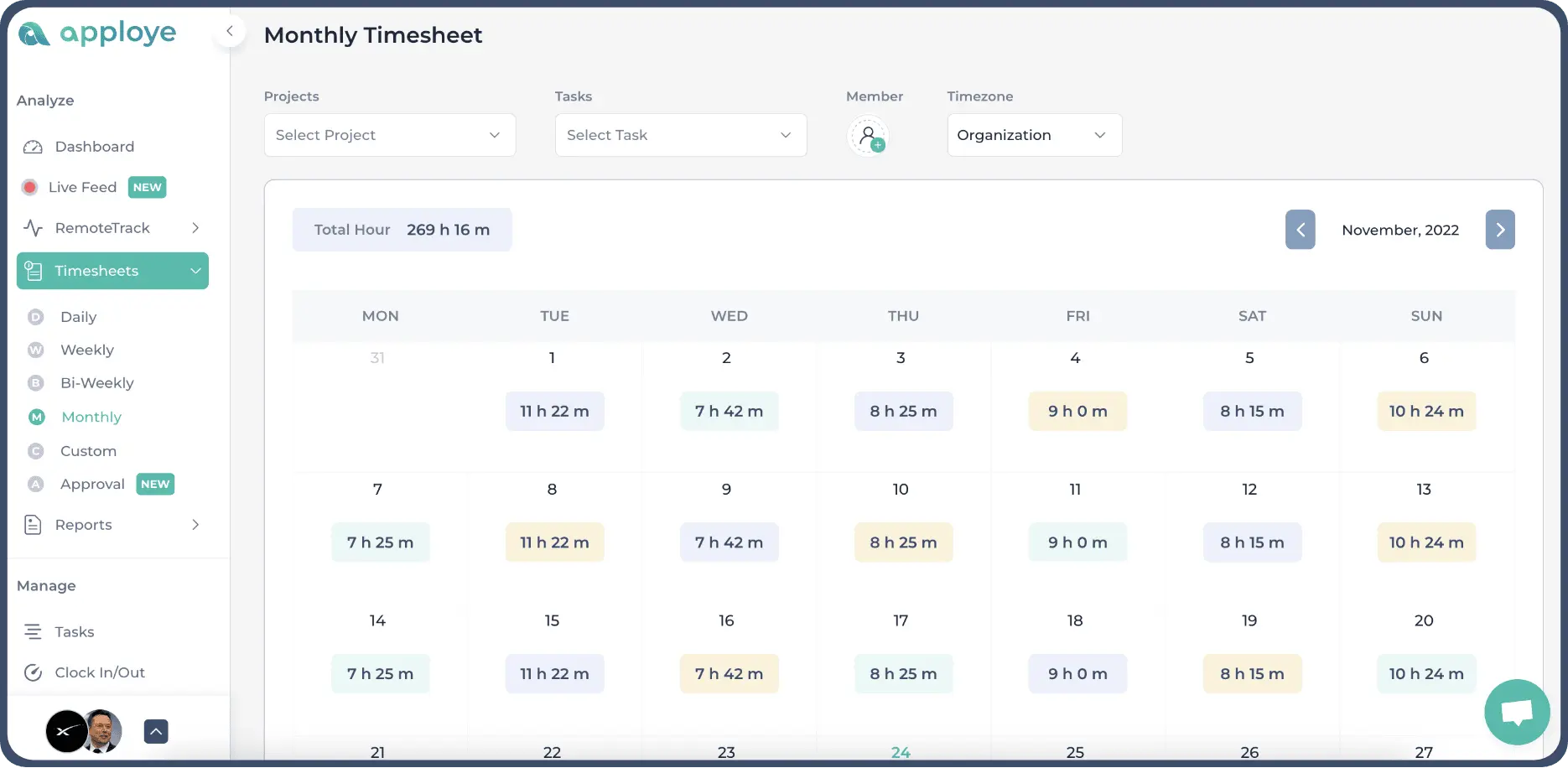
Apploye is a workforce and time tracking software that offers scheduling features suitable for managing employees in retail environments. It helps monitor work hours, assign shifts, and track productivity through simple tools.
This platform is commonly used by small businesses and retail teams looking for a basic system to schedule shifts, track attendance, and log work hours efficiently.
Key Features:
- Shift and employee scheduling
- Time tracking and attendance monitoring
- Activity tracking and productivity reports
| Pros | Cons |
|
|
6. SAP
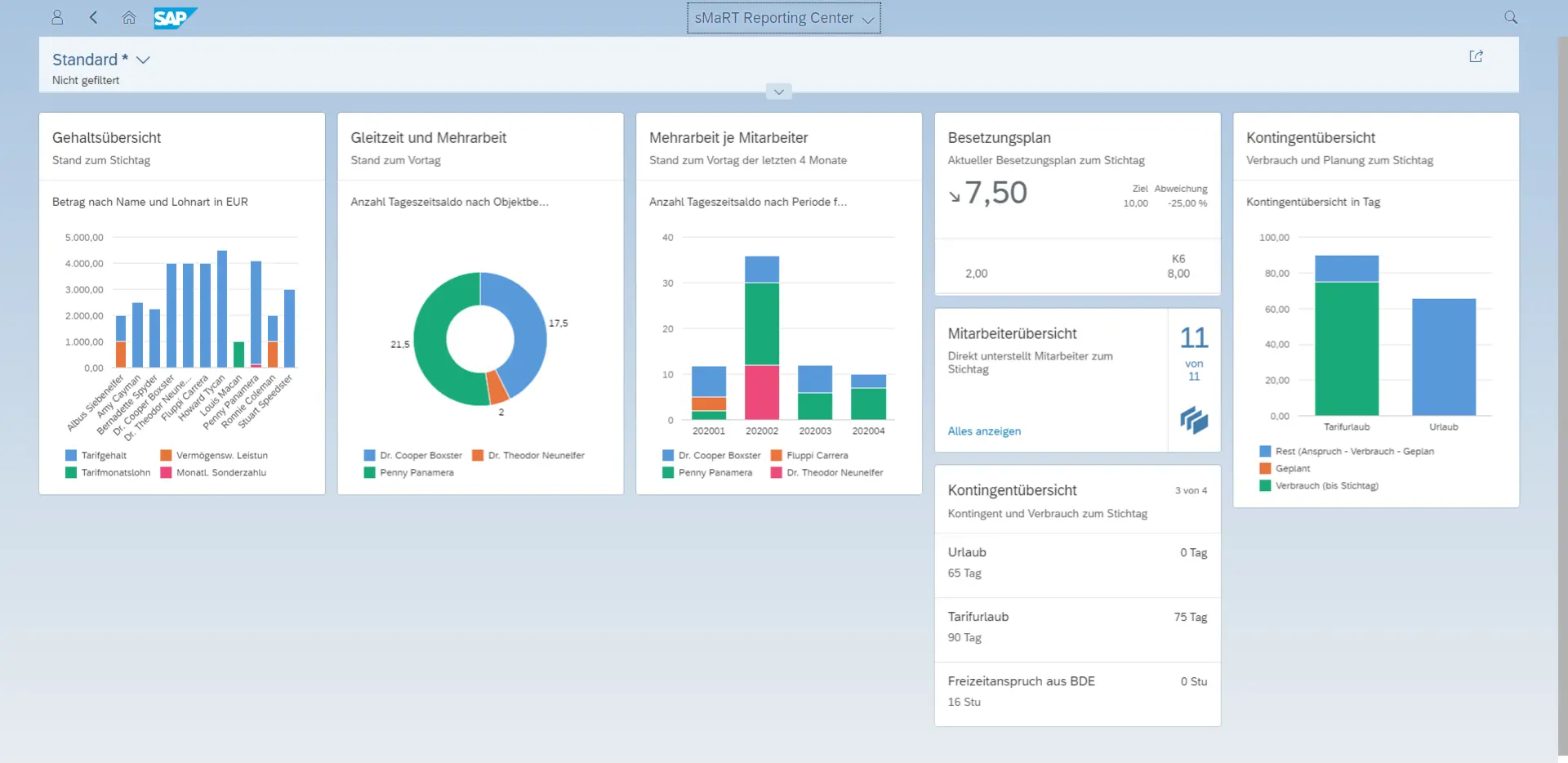
SAP is an enterprise-level software that offers workforce and scheduling management features for large retail businesses. It helps automate shift planning, track employee availability, and align staffing with operational needs.
This platform is often used by multi-location retailers that require an advanced system to handle complex schedules, compliance tracking, and integrated workforce analytics.
Key Features:
- Workforce scheduling and shift planning
- Time and attendance tracking
- Labor cost and compliance management
| Pros | Cons |
|
|
7. PeopleHum
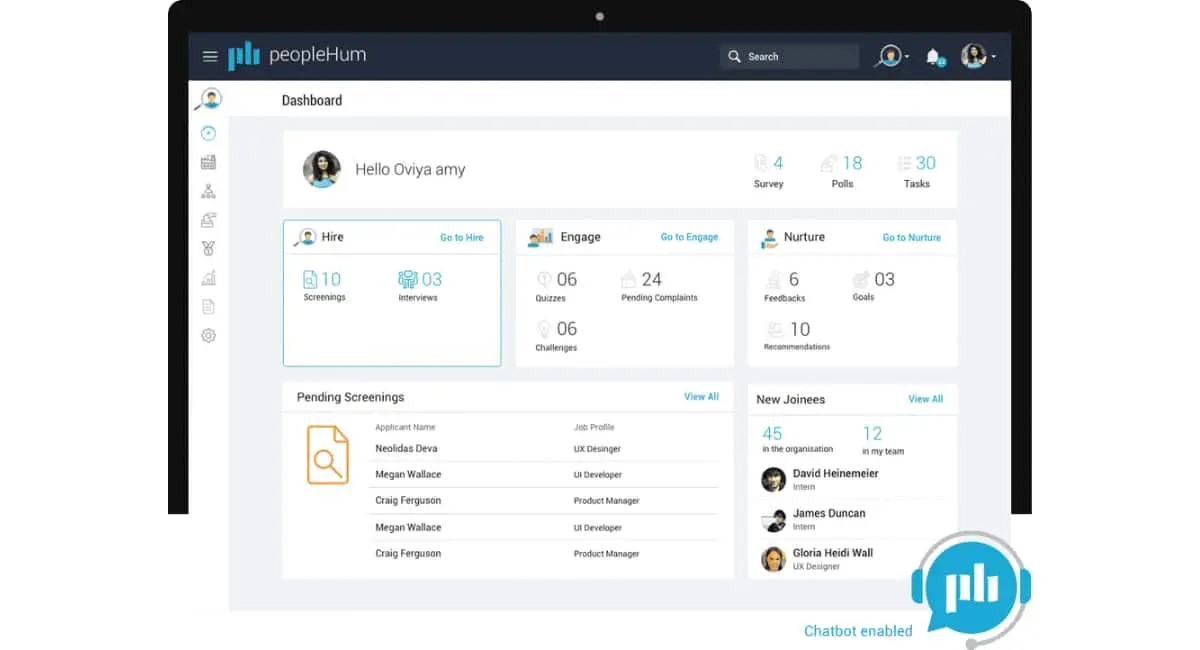
PeopleHum is a cloud-based HR platform that includes features for employee scheduling, attendance tracking, and performance management. It supports retailers in streamlining workforce planning and improving employee coordination.
This software is typically used by small to mid-sized businesses looking to manage shifts, monitor productivity, and maintain clear communication with their retail staff.
Key Features:
- Shift and schedule management
- Time and attendance tracking
- Employee engagement tools
| Pros | Cons |
|
|
8. PayrollPanda
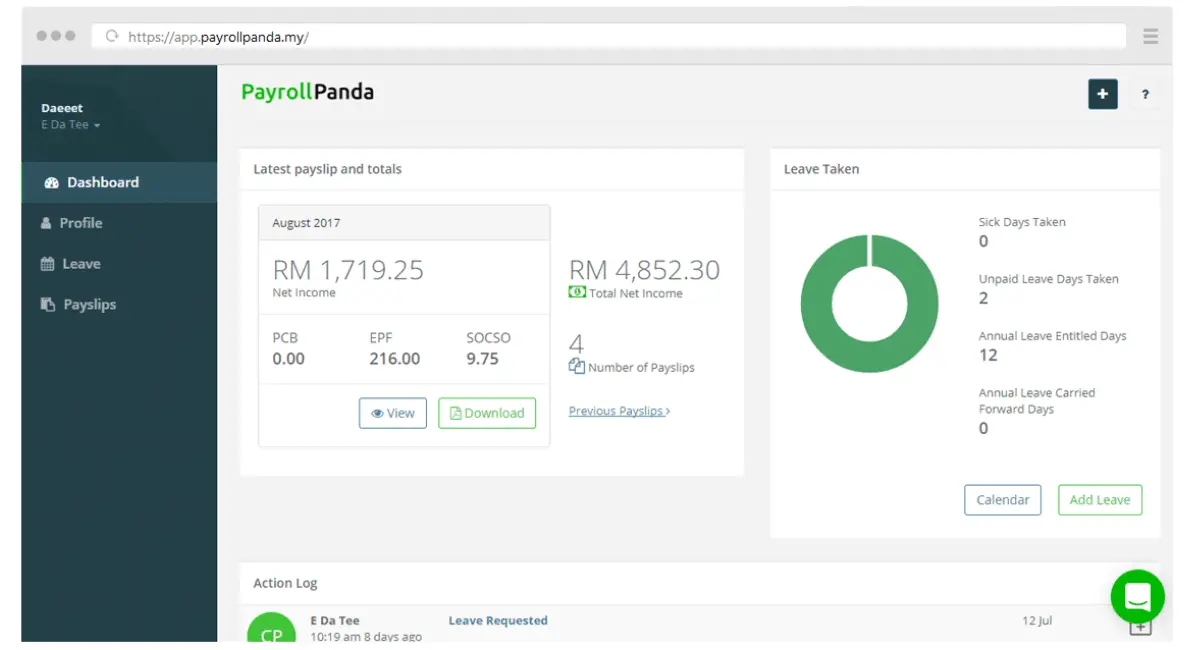
PayrollPanda is a Malaysia-based payroll and HR software designed to help small and medium-sized retail businesses handle employee records, shift planning, and payroll processing with ease. While its core focus is payroll, it also supports basic employee scheduling and attendance tracking.
Retail businesses that want a simplified solution to manage working hours and generate compliant payslips often turn to PayrollPanda for its local relevance and user-friendly interface.
Key Features:
- Shift scheduling and attendance tracking
- Payroll automation with statutory compliance
- Leave and employee data management
| Pros | Cons |
|
|
9. HR2eazy
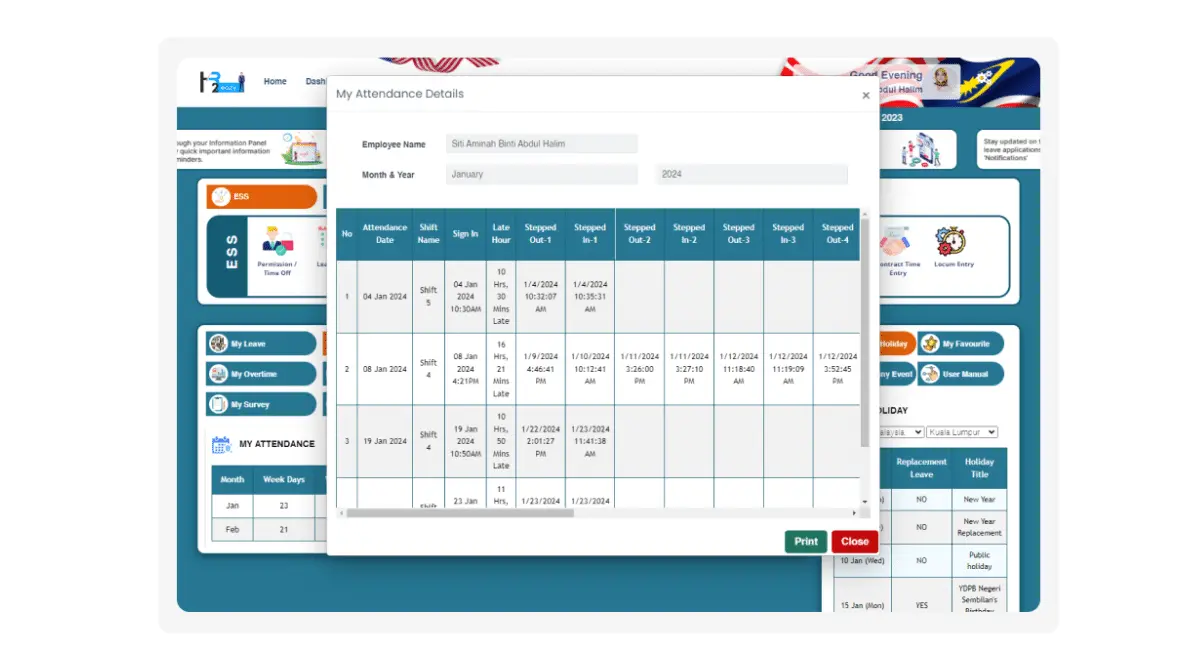
HR2eazy is a Malaysian HR and payroll software that offers features for scheduling, attendance tracking, and employee record management. It is designed to help retail businesses automate shift planning and streamline workforce management.
The software is commonly used by small to mid-sized retailers who need a localised system to manage work shifts, generate payroll, and monitor employee performance without complex configurations.
Key Features:
- Employee scheduling and time tracking
- Payroll and statutory compliance
- Leave, claim, and attendance management
| Pros | Cons |
|
|
10. FactoHR
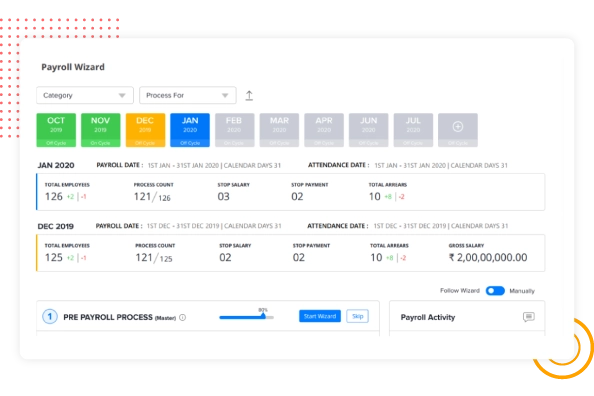
FactoHR is a cloud-based HR and payroll platform that offers shift scheduling and time tracking features suitable for retail businesses. It helps manage employee rosters, monitor attendance, and automate payroll processes.
The platform is commonly used by small to mid-sized retailers seeking a centralised system to handle workforce scheduling, attendance, and compliance with labor regulations.
Key Features:
- Shift scheduling and roster management
- Time and attendance tracking
- Payroll processing with compliance tools
| Pros | Cons |
|
|
11. AgileHR
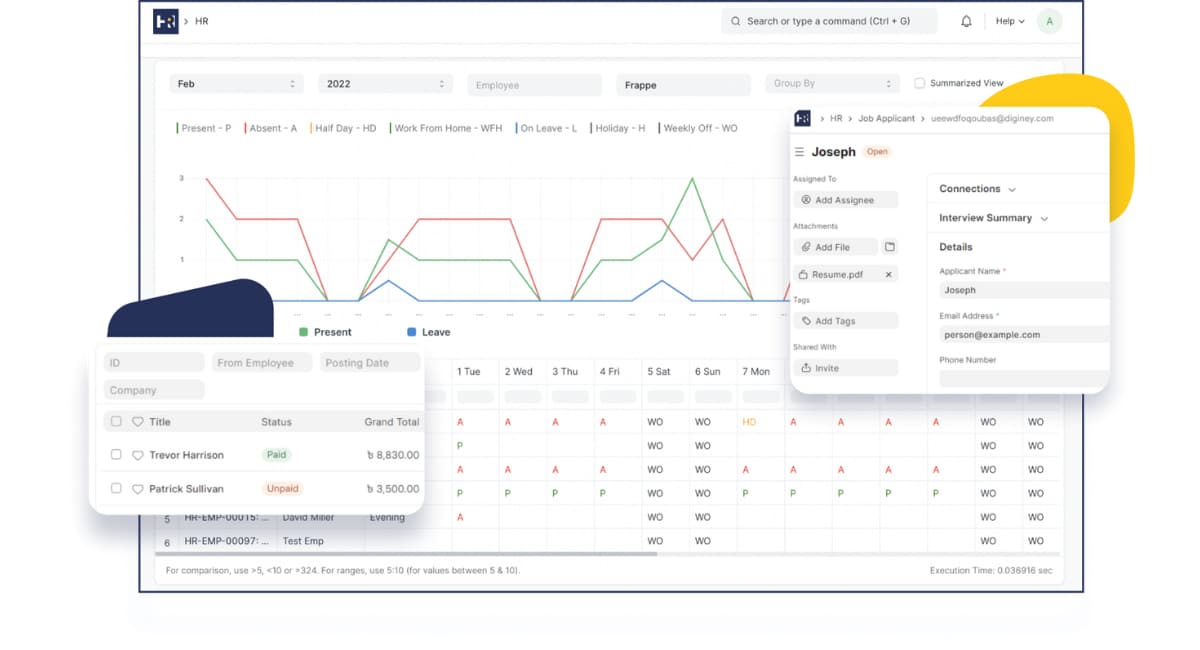
AgileHR is a cloud-based HR platform that offers workforce scheduling tools tailored for retail environments. It helps businesses plan employee shifts, monitor attendance, and manage time-off requests with greater ease.
This platform is typically used by retail teams that require a straightforward system to handle day-to-day scheduling while keeping labor costs under control.
Key Features:
- Shift scheduling and calendar view
- Attendance and leave management
- Employee self-service portal
| Pros | Cons |
|
|
12. Kakitangan
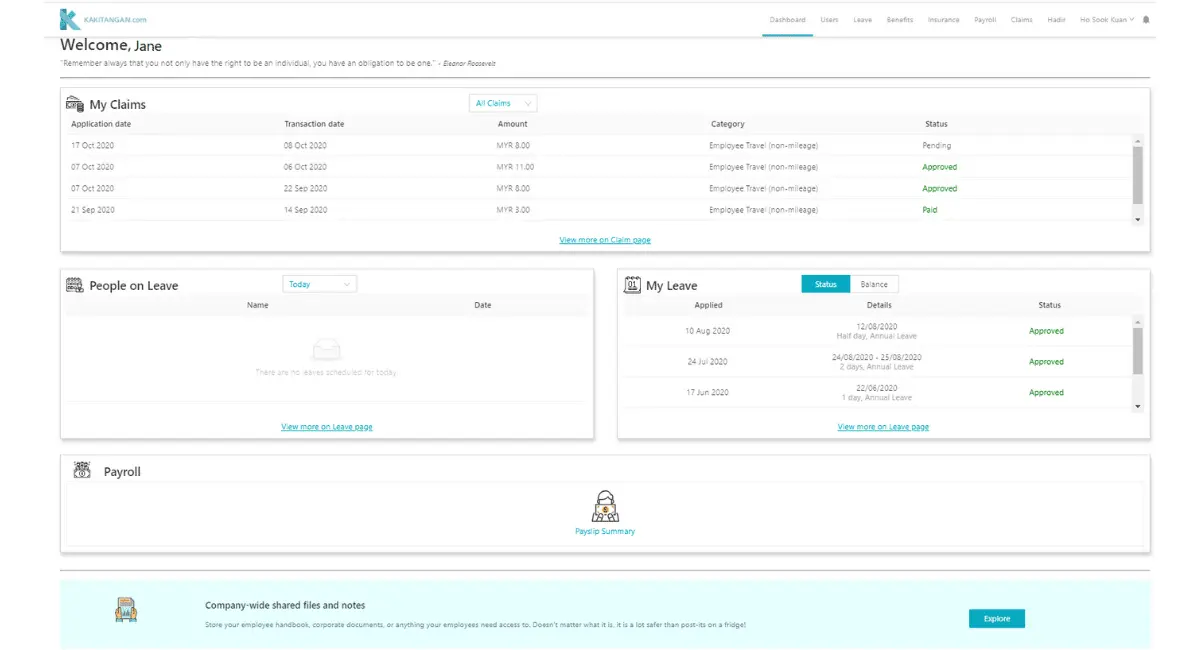
Kakitangan is a Malaysian-based HR software that offers basic employee scheduling features, making it suitable for retail businesses. It helps with shift planning, leave tracking, and ensuring accurate payroll based on attendance records.
Retail managers often use Kakitangan to manage small to mid-sized teams that require straightforward scheduling and HR tools in one platform.
Key Features:
- Shift and attendance tracking
- Leave management system
- Payroll integration
| Pros | Cons |
|
|
How to Choose the Right Retail Scheduling Software

Choosing the right scheduling software for a retail business is critical to ensure operational efficiency, employee satisfaction, and compliance with labor regulations. Whether you manage a single store or a multi-branch retail chain, here are the key factors to consider before choosing employee scheduling software:
1. Identify your scheduling challenges
Determine your specific needs, such as complex shift management, leave requests, or seasonal staff rotations. Understanding these challenges will help you choose software that fits your daily operations and long-term business goals.
2. Look for automation and flexibility features
Choose software that offers automated scheduling based on employee availability, the ability to swap shifts, and leave request management. These features reduce schedule conflicts, increase employee satisfaction, and save managerial time.
3. Ensure integration and scalability
The system should be able to integrate with other tools such as POS, payroll, and HR systems—or better yet, be part of a comprehensive retail ERP solution. This ensures unified reporting and smooth data flow across departments. Make sure the software can grow with your business, supporting the addition of new locations, additional staff, and other hardware needs.
4. Consider ease of use and support
Choose a platform with an intuitive interface suitable for store staff and management. Look for responsive vendor support and clear onboarding resources to help your team adapt quickly and maximise software functionality.
Conclusion
Selecting the right retail scheduling software is crucial for businesses seeking to enhance productivity, minimise scheduling conflicts, and maintain optimal staffing levels. With numerous options available on the market, retailers should assess their operational needs and choose a solution that provides flexibility, automation, and seamless integration.
For retail businesses seeking a comprehensive solution, HashMicro’s retail scheduling software provides automated shift planning, attendance tracking, and seamless integration with HR and payroll systems. Its cloud-based platform and smart scheduling features enable better staff coordination and help retailers manage labor costs more effectively.
Ready to improve your store’s workforce management? Schedule a free demo today and discover how HashMicro can simplify scheduling, enhance employee satisfaction, and support business growth across your retail locations.
Question About Retail Scheduling Software
-
How do I create a retail schedule?
Start by identifying peak business hours and employee availability. Use retail scheduling software to assign shifts based on role, experience, and preferences. Ensure the schedule balances labor needs with cost-efficiency and complies with labor laws.
-
What is the best employee scheduling software?
The best employee scheduling software depends on your business size and needs. For retail, solutions like HashMicro Scheduling Software, Employment Hero, and When I Work are popular for their automation, real-time updates, and integration with payroll and attendance systems.
-
How do I organize my retail store?
Begin by zoning your store based on product categories and customer flow. Use inventory management tools to monitor stock levels and ensure fast-selling items are easily accessible. Regular audits and visual merchandising updates will keep the store organized and attractive.
-
What is the best project scheduling software?
For managing projects, tools like Trello, Asana, and Monday.com are commonly used. They allow timeline planning, task assignment, and progress tracking, making them suitable for both retail campaigns and cross-department projects.







